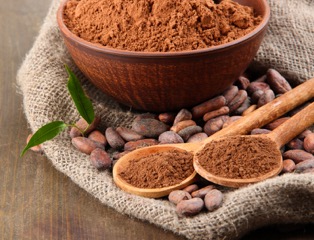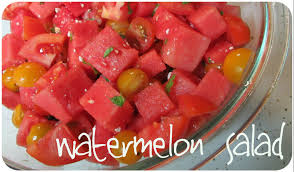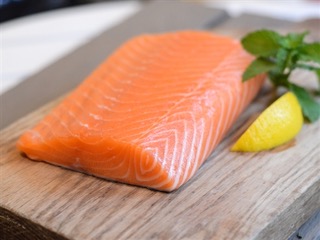The seven best foods for a youthful complexion
There was something I suspected for years, and now there is plenty of good evidence to back up my intuition. Here it is: some foods make you look older.
 At the top of the list are sugar and high fructose corn syrup (HFCS), which is found in many processed foods, sauces and drinks. These two damaging substances break down the natural collagen in your skin, which then speeds up the ageing process, making you look older than you should.
At the top of the list are sugar and high fructose corn syrup (HFCS), which is found in many processed foods, sauces and drinks. These two damaging substances break down the natural collagen in your skin, which then speeds up the ageing process, making you look older than you should.
Obviously, I suggest you eliminate sugar and HFCS from your diet as a matter of priority. But I’d also like to share with you the good news about what we put in our mouths – just as some food makes you look older, other foods can reverse the damage that causes ageing.
There are hundreds of studies showing antioxidants and other nutrients in food slow down the signs of ageing by disarming, or neutralising, free radicals that damage healthy skin, hair and nail cells.
And this is just the tip of the iceberg. Researchers have identified only a fraction of the active nutrients in our foods. As-yet unrecognised compounds in food work behind the scenes to boost the effects of individual nutrients. That’s why one serving of a whole food can be more effective than a mega-dose of supplements.
Here are seven wholefoods that will protect, nourish and heal your skin cells:
Cacao: gives skin a healthy glow
 Cacao, the core ingredient in chocolate, can DOUBLE blood flow to your skin. The increased supply of nutrients and oxygen adds up to a healthy glow. This was one of the reasons I chose to put alkalizing cacao in CELL Infuse Super Greens Chocolate’s secret ingredient is flavonoids. In an American Journal of Nutrition study, women drinking a cocoa/cacao drink every day significantly improved their appearance – after 12 weeks their skin was 16 per cent denser, 11 per cent thicker, held 13 per cent more moisture, was 30 per cent less rough, and 42 per cent less scaly. Make sure the chocolate you choose is at least 70 per cent cacao.
Cacao, the core ingredient in chocolate, can DOUBLE blood flow to your skin. The increased supply of nutrients and oxygen adds up to a healthy glow. This was one of the reasons I chose to put alkalizing cacao in CELL Infuse Super Greens Chocolate’s secret ingredient is flavonoids. In an American Journal of Nutrition study, women drinking a cocoa/cacao drink every day significantly improved their appearance – after 12 weeks their skin was 16 per cent denser, 11 per cent thicker, held 13 per cent more moisture, was 30 per cent less rough, and 42 per cent less scaly. Make sure the chocolate you choose is at least 70 per cent cacao.
Citrus: builds new collagen
Collagen is the basic structure of your skin; it starts breaking down in your late 20s. But vitamin C helps rebuild collagen and reduce wrinkles. A 2007 study of 4025 women showed those eating more vitamin C-rich foods had fewer wrinkles. Citrus fruits are a great source of vitamin C, as are strawberries, red bell peppers, Brussels sprouts, pomegranates, mangoes, and kiwifruit.
Tomatoes: nature’s sunscreen
The magic ingredient in tomatoes is lycopene, which acts as natural a sunblock, preventing sunspots, dryness and wrinkles caused by ultraviolet radiation. In a Journal of Nutrition study, subjects who ate tomato paste every day for 10 weeks showed less damage when subjected to UV radiation. Lycopene has also been shown to repair skin cells damaged by sunlight. Red or orange fruits and vegetables like tomatoes have high levels of this skin-loving nutrient.
Watermelon: for a dewy complexion
 Watermelon has a lot going for it, including antioxidants, vitamin C and lycopene. But what makes watermelon my pick for that young, dewy look is potassium. This often-ignored mineral regulates the balance of water and nutrients in your cells. In season, enjoy one or two cups of watermelon every week.
Watermelon has a lot going for it, including antioxidants, vitamin C and lycopene. But what makes watermelon my pick for that young, dewy look is potassium. This often-ignored mineral regulates the balance of water and nutrients in your cells. In season, enjoy one or two cups of watermelon every week.
Almonds: improve skin texture
Vitamin E is stored in the membranes of your skin cells and is essential for smooth skin. This vitamin deflects attacks by free radicals, and vitamin E in almonds promotes oil production to keep your skin moisturised. Other good sources include avocados, pumpkin seeds and sunflower seeds.
Salmon: heals dry skin
 You might think drinking too little water leads to dry skin. However, a significant cause of scaly skin actually comes from too little fat in your system. Salmon is rich in omega 3 fatty acids. A study in the American Journal of Clinical Nutrition found one serving of salmon every five days can prevent ugly, dry, precancerous patches called actinic keratosis. Insist on wild-caught salmon; farm-raised versions won’t have the same benefits.
You might think drinking too little water leads to dry skin. However, a significant cause of scaly skin actually comes from too little fat in your system. Salmon is rich in omega 3 fatty acids. A study in the American Journal of Clinical Nutrition found one serving of salmon every five days can prevent ugly, dry, precancerous patches called actinic keratosis. Insist on wild-caught salmon; farm-raised versions won’t have the same benefits.
Beef: erase under-eye circles
Iron is the secret to fading under-eye circles (also known as bags under your eyes). Iron deficiency can make your skin appear very pale, which emphasises the darkness under your eyes. Great sources of iron include grass-fed beef and liver. To maximise absorption I would suggest digestive enzymes, or consuming vitamin C rich greens.
Are you getting enough of these essential wholefoods?
Here’s to abundant health!
Judy & LifeCell Australia team.
